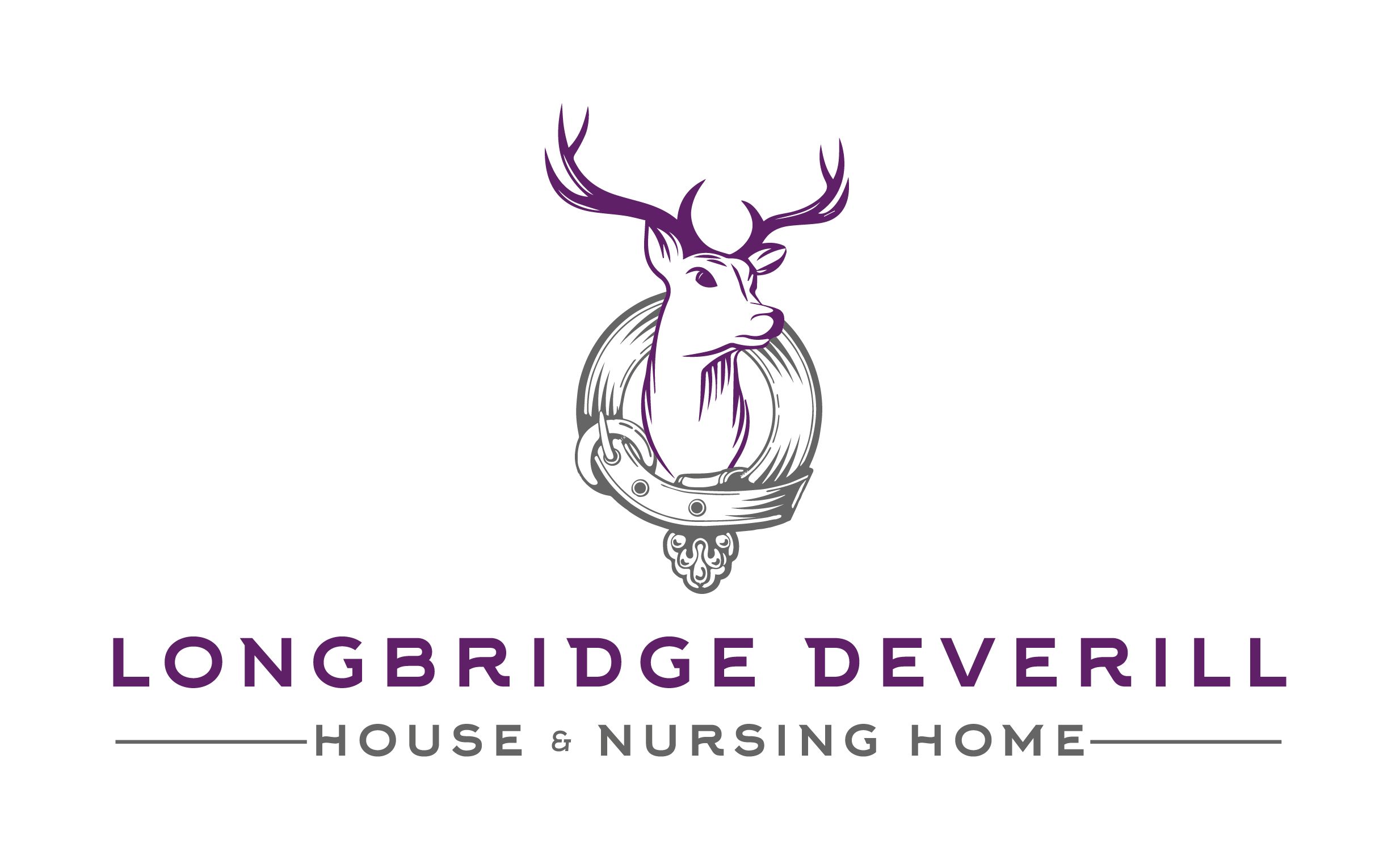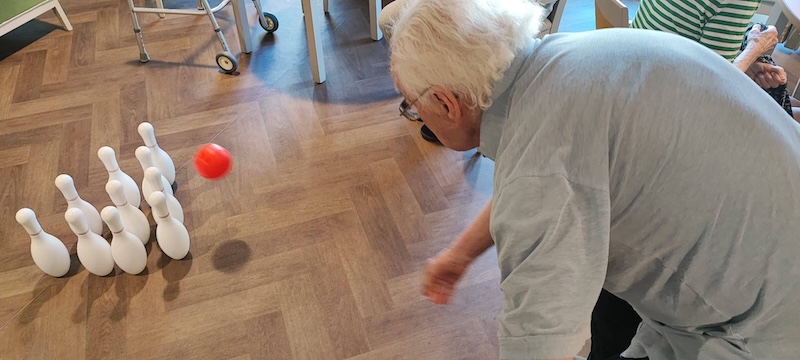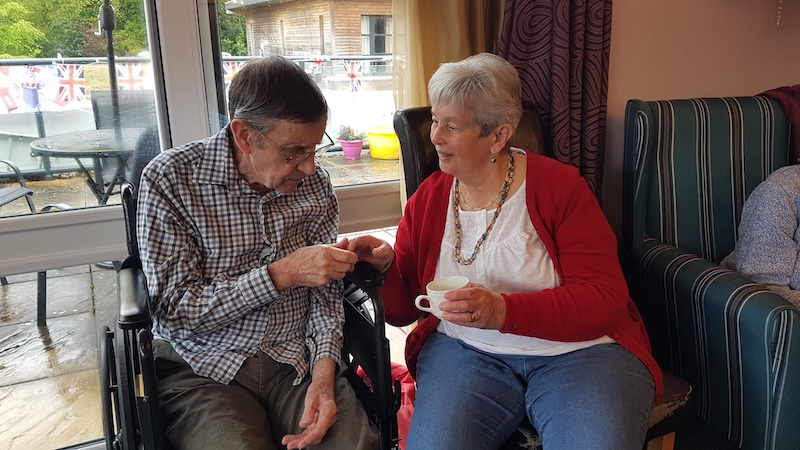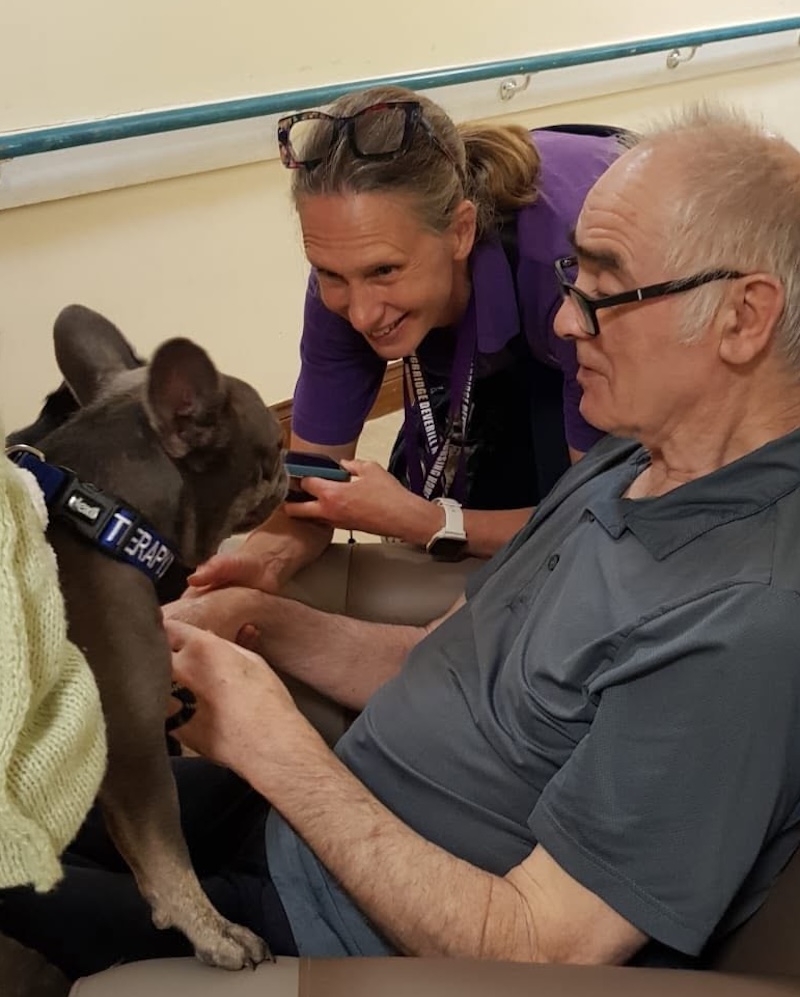The Benefits Of Pet Therapy For Seniors In A Care Home
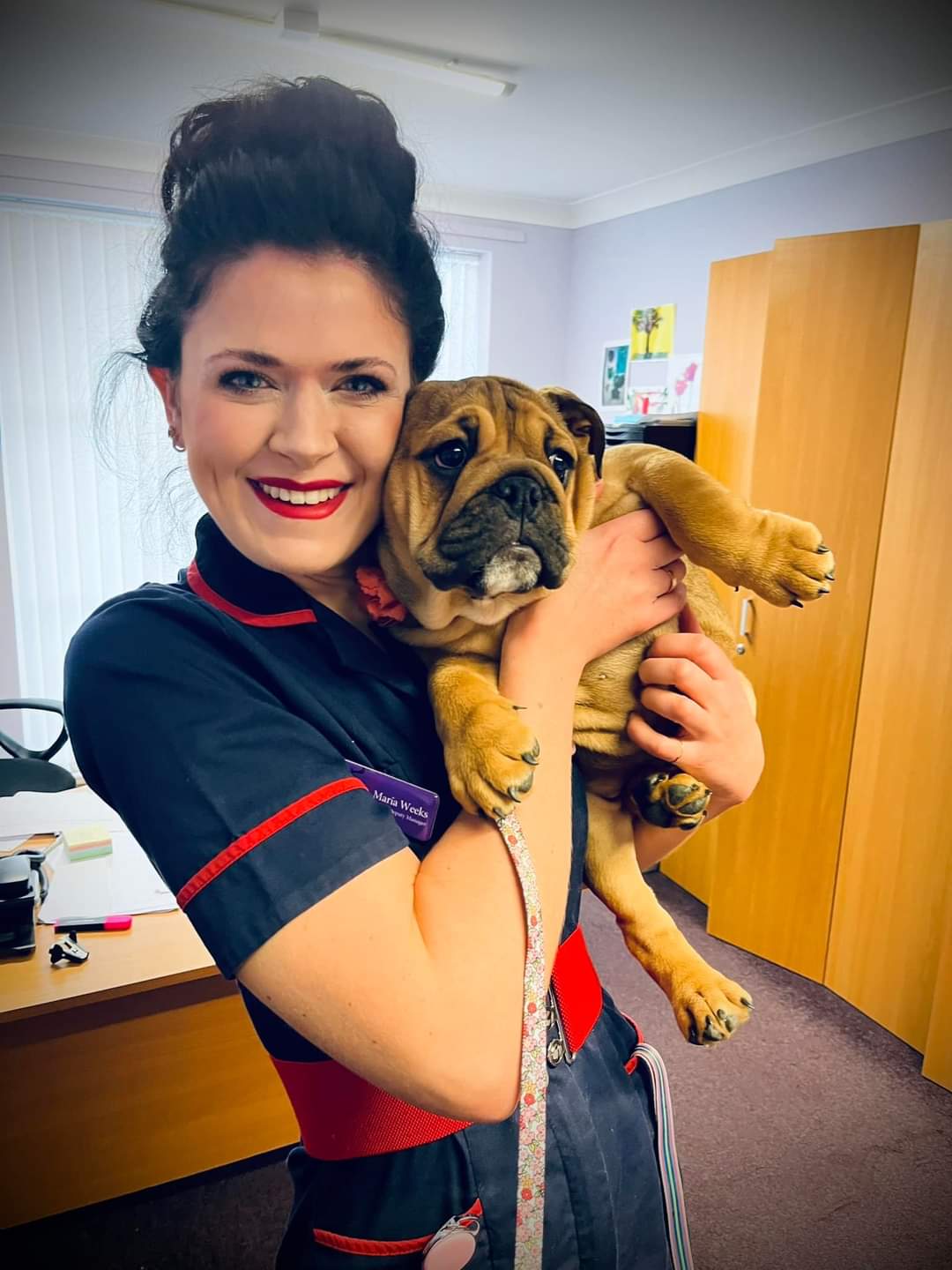
Many care homes in and around the UK understand the importance of pet or animal therapy, with regular interaction it means immediate and longer lasting, positive physical and mental health effects. Within this blog post, we look into the benefits of pet therapy and what effects it has on older people.
What is Pet Therapy?
Pet therapy is a guided interaction between an individual and a trained animal. It’s a type of complementary or alternative therapy that enhances, yet doesn’t replace other treatments. This service is provided in a range of settings, from retirement living to community care and residential care, nursing homes, hospices and rehabilitation centres. Pet therapy can vary from small domesticated pets to larger, farm animals. The most common type of animal used is dogs in care homes. However, other animals can be used…
- Cats
- Rabbits
- Guinea Pigs
- Cockatoos
- Fish Aquariums
- Parrots
- Reptiles
- Horses & Other Farm Animals
The Benefits of Pet Therapy for Seniors
Research shows that when animals visit a care home and they spend time with residents, it can boost their general health and mental well-being, reducing any negative feelings. This type of therapy uses trained animals as a form of companionship and treatment for people of all ages and medical needs, with the aim of boosting social interaction, cognitive abilities and emotional well-being.
Pet therapy within a care home provides residents with affection, entertainment and enjoyment, along with meaningful relationships. Those who are given the opportunity to spend time with animals during pet therapy can enjoy the following benefits:
Reduces Social Isolation & Improves Social Wellbeing
Feeling isolated from family members can lead to a lack of motivation, a sense of purpose and possibly depression. Pet therapy has been around for more than 12,000 years; the natural healing that comes from interacting with animals continues to provide positive effects on many people, especially those living in a care home. Within these moments spent with animals, individuals receive unconditional affection with benefits lasting long after a therapy session has ended, leaving residents talking about it, which encourages residents to further reminisce about their experience.
Increases Mental Stimulation
Animals provide a type of unconditional love that helps individuals build social skills, self-esteem and self-confidence. Animal-assisted therapies can also help with cognitive skills and memory, especially for those who suffer from dementia, bringing back memories of their own pets' names, breeds and other happy memories along with recalling the handler’s name, improving motor skills and giving back basic commands to the dog for example.
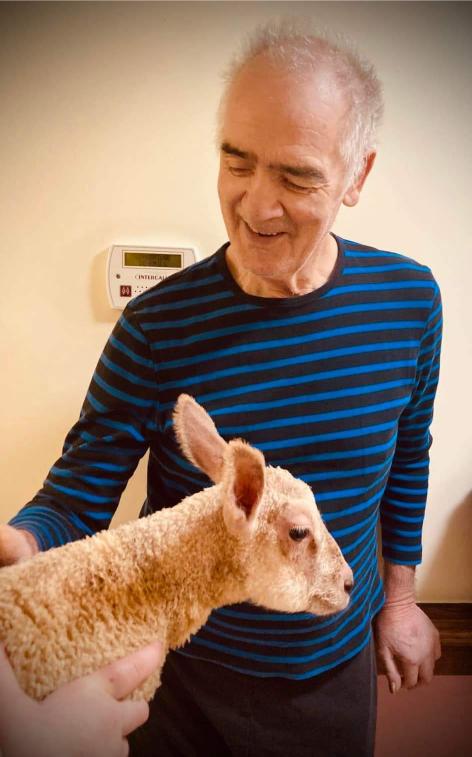
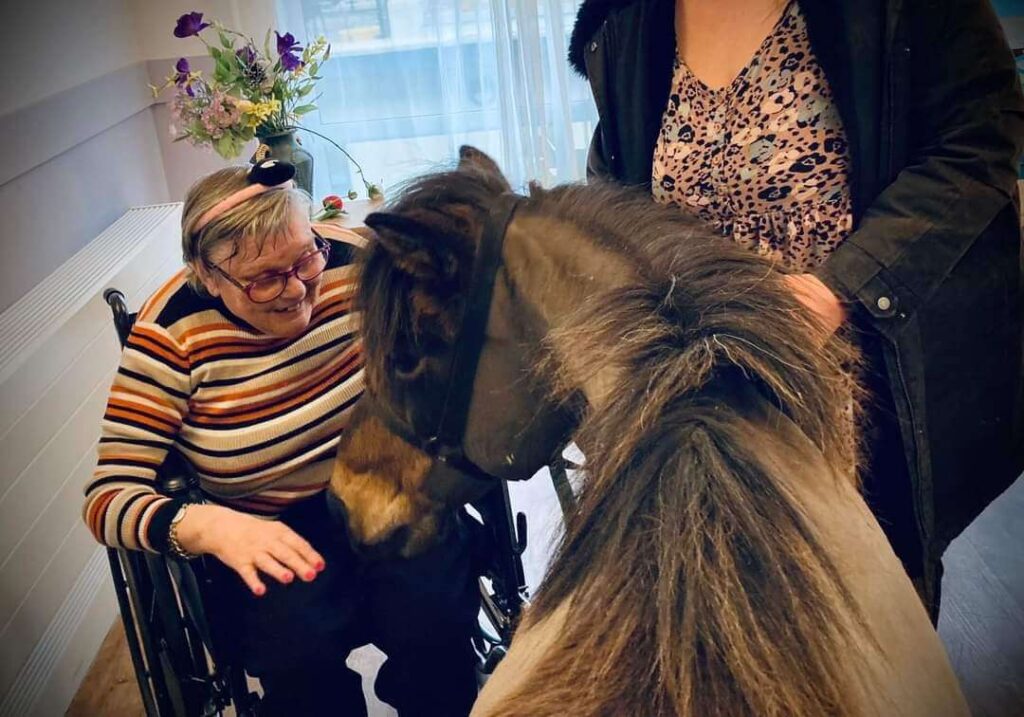
Improve Mental Health & Wellbeing
These positive interactions individuals have with animals lead to benefits through the mind and body, reducing stress levels and providing a balanced mental and emotional state. Those who may not be able to have verbal communication with others are able to communicate through touch and facial expressions.
Boost Emotional Wellbeing & Increased Levels of Oxytocin
Oxytocin, serotonin and dopamine are increased in your body whilst the bad cortisol decreases, meaning individuals will feel better instantly, without the emotional aspects of being with the pet.
Lower Blood Pressure
An animal’s presence can have a calming effect which can help reduce anxiety and enhance general cardiovascular health, minimising high blood pressure. Interacting with animals during regular visits naturally provides a calming and relaxing atmosphere.
Animal Therapy at Longbridge Deverill Care Home
As care specialists, we understand the benefits of pet therapy for seniors in both care homes and nursing homes. With our range of activities and facilities, we’re able to create a care home in Wiltshire where all of our residents feel safe, loved and excited for the day ahead.
We are fortunate to have a variety of animal therapists in our care home. Our therapy dogs include Fig, Doris and Mollie. Hamish, our hamster therapist and Mango, our chicken therapist, also bring joy to all our residents.




Within our warm and welcoming care home, we strive to create an environment where we regularly seek input from our residents as to what they’d like to do with their day through multiple activities. Both residents and staff members enjoy spending plenty of quality time with our animals both inside the home as well as those visiting and it’s already proven to be a positive activity in which everyone looks forward to.
Life at Longbridge Deverill Care Home
Longbridge Deverill is a care home in Warminster, providing residents with gorgeous views across four areas of landscaped gardens, within a quiet residential street, close to the Wylye Valley. Our luxury care home accommodates up to 70 residents, all providing exceptional levels of residential dementia care, specialist dementia care, respite care and nursing care; all delivered by an experienced and dedicated team, 24 hours a day, 7 days a week. We’re proud to offer a friendly, welcoming environment for our residents and we’re always going above and beyond to ensure a loving and caring community is built, where supports extended to our residents family members and friends.
Within our purpose-built care home, we have a selection of amenities, facilities and services which are available to all of our residents. From afternoon tea on our rooftop terrance to a trip to the local garden centre or in-house hair salon. Everyone deserves to live a well lived life and at Longbridge Deverill, we’re able to deliver this, adding new chapters and creating long lasting memories.


If you’re looking for a care home or would like to discuss the benefits of pet therapy further, please don’t hesitate to get in touch with our wonderful team today and we can discuss all available care options here at Longbridge Deverill.
